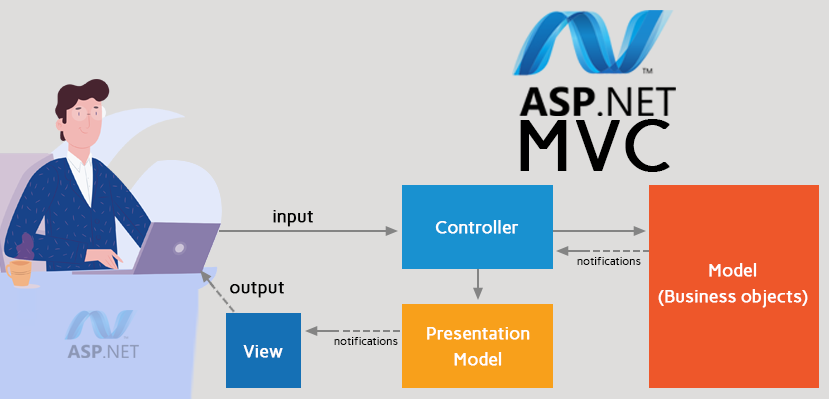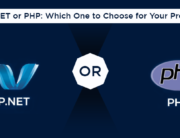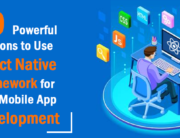Are you thinking of getting developed an ASP.NET MVC web application for your business? Before you go ahead to hire dot net developer from a particular software development firm for this purpose, you ought to have some knowledge about what actually is ASP.NET MVC and its major features. This will help you decide whether the ASP.NET MVC is the right option for your application creation. In case you have opted for ASP.NET MVC, this will let you gain a better understanding of the processes and aspects related to your MVC application development project.
What is ASP.NET MVC?

ASP.NET MVC is an open source framework for web development. Created by Scott Guthrie and his colleague Mark Anders at Microsoft in 2007, the ASP.NET MVC framework provides a Model View Controller architecture. It provides an alternative to the ASP.NET Web Forms pattern for building web applications. ASP.NET MVC has better performance than Web Forms. It enables developers to create web applications and websites through the use of HTML, CSS, JavaScript, jQuery besides others.
The ASP.NET MVC is a testable and light in weight presentation framework. It is integrated with various existing ASP.NET features like master pages, membership-based authentication, etc.
The architectural pattern of MVC splits an application into three core logical components, namely model, view and controller.
The Model is the business layer.
The View is the display layer.
The Controller is input control.

These components are interconnected. Every component is designed to deal with particular development aspects of an application. MVC enables developers to design an application in a scalable, extensible and maintainable manner.
The ASP.NET MVC framework is suitable for building complex but lightweight web applications. It facilitates rapid and efficient application development. The framework has a loosely coupled architecture that allows bigger teams of web designers and developers to work parallely in the development projects. Different teams can work in their own area without any controlling from another team. Each of the three components of MVC; Model, View and Controller can be developed and tested in relative isolation. Also, the components can be combined to build an extremely powerful application.
Components
These are the components of ASP.NET MVC:-
Model
Model objects are those parts of an MVC application that are responsible for implementing the logic for the data domain of the application. This component stores model state/data for the application in a database and extracts it from the database. The model represents the data which gets transferred between the View and Controller components or any other data associated with business logic.
A good example of the model is a customer object that retrieves customer-centric data from the database, manipulates it and updates it back to the database or just makes use of the data for rendering it.
View
The view is used for displaying the user interface of an MVC application. It shows the whole data by utilizing the model. An example of the view is the Customer View that displays all the UI components like text boxes, check boxes, pop-ups, drop downs besides others which the final user interacts with.
Controller
The controller is the interface between the model and view components. It manages and responds to the input and interaction from a user. Controller renders the suitable view to the client, executes the relevant action method, obtains data from the model and fills the view, gets data from the view and updates the model. As an example, the Customer controller manages all the interactions and inputs received from the Customer View and updates the database by using the Customer model. The Customer controller is also utilized for viewing the Customer-specific data.
Let’s now discover the key features of ASP.NET MVC:-
1.Testability and test-driven development
ASP.NET MVC makes use of the SoC or separation of concern design principle which allows the MVC application to be divided into three components; input logic (controller), business logic (model) and UI logic (view). Separation of concern allows testability and test-driven development or TDD by default in the MVC framework application. All the components in the application can be designed as interface-based and tested by making use of mock objects. Better testability and good support for test driven development makes the ASP.NET MVC framework suitable for those projects where a bigger team of web developers is working.
2. Full control
MVC allows developers to have complete control over their JavaScript, HTML and URLs. It also gives them complete control over an application’s behaviour as it does not make use of server based forms or view state.
3. Support for existing ASP.NET features
As ASP.NET MVC provides support for various existing ASP.NET features like URL authorization, membership and roles, forms authentication and Windows authentication, session and profile state management, output and data caching, health monitoring, the provider architecture and the configuration system, so developers are able to leverage these features.
Also Read: How To Boost The Speed Of Your Angular Applications?
4. Highly customizable
The components of the ASP.NET MVC framework are designed to be extremely customizable. So developers can easily replace or customize them. It allows them to plug in their own action-method parameter serialization, view engine, URL routing policy and other components.
5. Understandable and searchable URLs
The ASP.NET MVC framework is equipped with a robust URL-mapping component which allows developers to build applications that contain comprehensible and searchable URLs. These URLs are friendly to both humans and search engines.
6. Supports dependency injection and inversion of control
The ASP.NET MVC supports using the Dependency Injection or DI and Inversion of Control or IOC container models. Dependency injection enables developers to inject an object into a class, rather than relying on the class to create the object itself. Inversion of control states that in the event of an object needing another object, the first object should obtain the second object from an outside source like a configuration file. This facilitates testability.
Want to build an ASP.NET MVC application for your business? Hire developers from Matrid Technologies, a software development company of unrivalled reputation. CONTACT US TODAY!
7. Suitable for lightweight applications
The ASP.NET MVC framework does not utilize the View State concept that exists in ASP.NET. This helps developers in building lightweight applications and lets them have full control. MVC is ideal for developing complex yet lightweight applications.
8. Better management of project complexity
As the ASP.NET MVC application has a component-based design which is logically divided into Model, View and Controller components, so developers are able to work on individual components and lessen the complexity in large-scale projects. This makes the MVC framework suitable for building large scale applications in projects with multiple teams.
9. Increased usability
For using the ASP.NET MVC framework, developers need not have a lot of technical knowledge. But they need to learn how it works. In comparison to many other website forms, the framework is much better to use. Also, it can be used with more ease.
10. Enables adding of API services
MVC helps developers add API web services. In order to add these services to their web based applications, developers require learning the working of these services.
After gaining knowledge about the ASP.NET MVC framework and its features, it will become easy for you to decide whether to use MVC or not for building web applications for your business. Also, you can get an idea of how developers will work on your ASP.NET MVC web application development project in case you opt for this framework.
If you are looking for proficient and knowledgeable dot net developers for building a unique and high performance MVC application as per your specific business vision and needs, you can rely on Matrid Technologies, an established and experienced software development company.








Leave A Comment